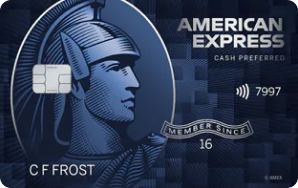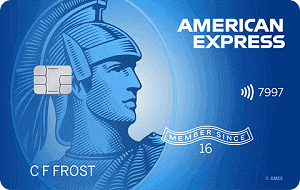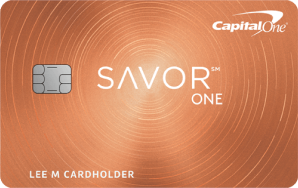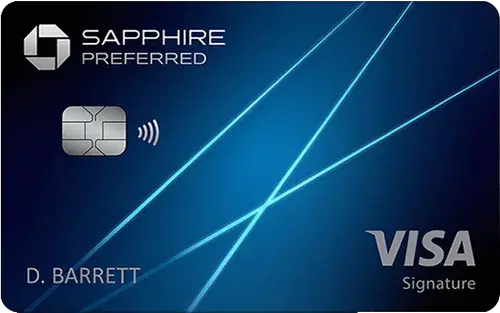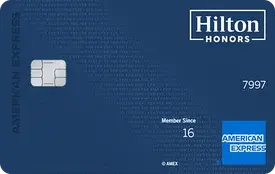- Our top picks for the best grocery credit cards are the Blue Cash Preferred® Card from American Express, the Blue Cash Everyday® Card from American Express, the American Express® Gold Card, and the Capital One SavorOne Cash Rewards Credit Card.
- Grocery credit cards give you the opportunity to earn cash back, points and other rewards on your everyday grocery purchases.
- The best grocery store credit card for your needs depends on where you shop and how much you typically spend.
- Several grocery store credit cards have no annual fees.
- Opening more than one credit card may help you maximize your grocery rewards.
On This Page
- Key takeaways
- Our top picks for the best credit cards for groceries
- Compare the best grocery credit cards
- Best credit cards for groceries: Editorial reviews
- Should I use a credit card to buy groceries?
- How do grocery credit cards work?
- Types of credit cards for grocery shopping
- How much money can I save with a grocery credit card?
- How to choose the best credit card for groceries
- How to maximize rewards with a grocery card
- Should I have more than one credit card for groceries?
- FAQ: Best credit card for groceries
On This Page
- Key takeaways
- Our top picks for the best credit cards for groceries
- Compare the best grocery credit cards
- Best credit cards for groceries: Editorial reviews
- Should I use a credit card to buy groceries?
- How do grocery credit cards work?
- Types of credit cards for grocery shopping
- How much money can I save with a grocery credit card?
- How to choose the best credit card for groceries
- How to maximize rewards with a grocery card
- Should I have more than one credit card for groceries?
- FAQ: Best credit card for groceries
7 Best Credit Cards for Groceries of 2024
Our top picks for the best credit card for groceries
- Blue Cash Preferred® Card from American Express: Best overall for groceries
- Blue Cash Everyday® Card from American Express: Best for grocery rewards with no annual fee
- American Express® Gold Card: Best for earning points on groceries
- Capital One SavorOne Cash Rewards Credit Card: Best for an easy-to-earn welcome bonus
- Chase Sapphire Preferred® Card: Best for frequent travelers
- Hilton Honors American Express Surpass® Card: Best for Hilton loyalists
Our top picks for the best credit cards for groceries
Best overall for groceries
Blue Cash Preferred® Card from American Express
Earn 6% cash back on up to $6,000 spent at U.S. supermarkets each year (then 1% back), 6% cash back on select U.S. streaming services, 3% cash back at U.S. gas stations and on transit, and 1% cash back on other eligible purchases. Cash back is received in the form of Reward Dollars that can be redeemed as a statement credit or at Amazon.com checkout.
Card Details
More card info
- 0% Intro APR for purchases and balance transfers for the first 12 months, then 19.24% to 29.99% variable applies.
- Cash Back is received as Reward Dollars which can be redeemed as a statement credit or at Amazon.com checkout.
- Get $7/month back in the form of a statement credit when you spend $9.99 or more per month on an eligible Disney Bundle subscription (Disney+, Hulu, and ESPN+). Subject to auto-renewal. Only valid in the U.S. Enrollment required.
- Terms Apply.
Pros
- Excellent rewards on spending at U.S. supermarkets, U.S. gas stations, transit and more
- 0% APR on purchases for a limited time
- Don’t need to activate categories
Cons
- Rewards can only be redeemed for a statement credit or at Amazon.com
- Charges foreign transaction fees
- Has an annual fee
Best for grocery rewards with no annual fee
Blue Cash Everyday® Card from American Express
Earn 3% cash back on up to $6,000/year spent at U.S. supermarkets (then 1%), 3% cash back on up to $6,000/year at U.S. gas stations (then 1%), 3% cash back on up to $6,000/year on online retail purchases (then 1%), and 1% cash back on all other eligible purchases. Cash back is received in the form of Reward Dollars that can be redeemed as a statement credit or at Amazon.com checkout.
Card Details
More card info
- 0% intro APR on purchases and balance transfers for 15 months after opening the account, then 19.24% to 29.99% variable APR applies.
- Cash Back is received as Reward Dollars which can be redeemed as a statement credit or at Amazon.com checkout.
- Get $7/month back in the form of a statement credit when you spend $9.99 or more per month on an eligible Disney Bundle subscription (Disney+, Hulu, and ESPN+). Subject to auto-renewal. Enrollment required.
- Receive up to $15 back per month when you purchase a Home Chef meal kit subscription. Subject to auto-renewal. Enrollment required.
- Terms Apply.
Pros
- No annual fee
- Various partner benefits
- Generous rewards at U.S. supermarkets, U.S. gas stations & online shopping
Cons
- Rewards cap on spending at U.S. supermarkets, U.S. gas stations, and online retail purchases
- 2.7% foreign transaction fee
- Low rewards rate outside of bonus categories
Best for earning points on groceries
American Express® Gold Card
Earn 4X Membership Rewards® points per dollar spent on purchases at restaurants worldwide (plus takeout and delivery in the U.S.), on up to $50,000 in purchases per calendar year, then 1X, 4 points per dollar at U.S. supermarkets (on up to $25,000 per calendar year in purchases, then 1 point per dollar), 3 points per dollar on flights booked directly with airlines or on amextravel.com, and 1 point per dollar on other eligible purchases
Card Details
More card info
- Up to $120 Uber Cash on Gold: Add your Gold Card as a payment method on your Uber account and automatically receive $10 in Uber Cash each month for Uber Eats orders or Uber rides in the U.S. (Up to $120 annually.) To receive this benefit you must have downloaded the latest version of the Uber App and your eligible American Express Gold Card must be a method of payment on your Uber account. This benefit may only be used in the United States.
- Up to $120 Dining Credit: Enjoy up to $10 in monthly statement credits when you use your American Express® Gold Card at Grubhub, The Cheesecake Factory, Goldbelly, Wine.com, and Five Guys locations. Enrollment required.
- $100 experience credit: Receive a $100 experience credit when you book The Hotel Collection through American Express Travel. Experience credit amounts vary by property, and are given only with a minimum two-night stay.
- Up to $100 Resy credit: Receive up to $50 in statement credits every 6 months (up to $100 per year) when you use your Gold Card at U.S. Resy restaurants or other eligible Resy purchases.
- Up to $84 in annual Dunkin’ credits: Get $7 back per month in credits after you enroll and pay with your Amex Gold card at Dunkin’ locations
- Customize your card to fit your style: Gold, Rose Gold, or White Gold. White Gold is only available as supplies last.
- No Foreign Transaction Fees.
- Terms Apply.
Pros
- Generous welcome offer
- High rewards potential
- Many transfer partners available
Cons
- High annual fee
- Complicated statement credits
- Good or excellent credit recommended
Best for an easy-to-earn welcome bonus
Capital One SavorOne Cash Rewards Credit Card
Earn unlimited 3% cash back on dining, entertainment, popular streaming services and at grocery stores (excluding superstores like Walmart® and Target®), plus 1% back on all other purchases. Earn 8% cash back on Capital One Entertainment purchases when you book through the Capital One Entertainment portal. Earn 5% back on hotels and rental cars booked through Capital One Travel. Earn 10% cash back on purchases made through Uber & Uber Eats, plus complimentary Uber One membership statement credits through 11/14/2024.
Card Details
More card info
- 0% intro APR on purchases and balance transfers for 15 months (then 19.99% - 29.99% variable APR).
- Balance transfer fee of 3% for the first 15 months; 4% at a promotional APR that Capital One may offer you at any other time
- There are no rotating categories or sign-ups needed to earn cash rewards
- Cash back won’t expire for the life of the account
- No limit to how much cash-back you can earn
- No foreign transaction fees
Pros
- No rotating categories that you need to sign up for
- No spending cap
- No annual fee
Cons
- High APR
- Good or excellent credit recommended
- Low sign-up bonus
Best for frequent travelers
Chase Sapphire Preferred® Card
Earn 5X points on Chase Travel℠ purchases, 3X points on dining, online grocery purchases, and select streaming services, and 1X points on other purchases.
Best for Hilton loyalists
Hilton Honors American Express Surpass® Card
Earn 12X points on eligible purchases made directly with Hilton hotels and resorts, 6X points at U.S. restaurants, U.S. gas stations, and U.S. supermarkets, 4X points on U.S. online retail purchases, and 3X points on all other eligible purchases.
Card Details
More card info
- Enjoy up to $200 back each year on eligible Hilton purchases when you use your Hilton Honors American Express Surpass® Card.
- After you spend $15,000 on eligible purchases on your Card in a calendar year, you can earn a Free Night Reward from Hilton Honors.
- Cardholders can benefit from complimentary Hilton Honors ™ Gold Status with their Hilton Honors American Express Surpass® Card.
- If you spend $40,000 on eligible purchases on your Card in a calendar year, you can earn Hilton Honors™ Diamond Status through the end of the next calendar year.
- Enroll in the complimentary Emerald Club® program, and you can enjoy complimentary National Car Rental® Emerald Club Executive® status. Terms apply.
- Swipe your card freely while abroad with no Foreign Transaction Fees.
- Terms Apply.
Pros
- Automatic Hilton Gold status
- Ability to earn a free night with enough spending
- Up to $200 in Hilton statement credits (up to $50 in statement credits each quarter)
Cons
- Has an annual fee
- High spending requirement for Free Night Award
- Limited redemption options
Compare the best grocery credit cards
Should I use a credit card to buy groceries?
It’s worth using a credit card to buy groceries if you don’t increase your spending just to earn extra rewards.
The main reason to open a grocery credit card is to earn cash back, points or miles based on your typical spending habits. If you have to spend more than you budgeted just to earn a few more perks, even the best credit card for food shopping isn’t worth it.
Pros and cons of credit cards for groceries
- Regular opportunities to earn rewards
- No need to deduct each transaction from your bank balance
- Access to discount offers, welcome bonuses and other perks
- May help build credit
- Risk of overspending
- High interest rates on some cards
- Warehouse clubs, convenience stores and superstores are often excluded from bonus categories
How do grocery credit cards work?
The best grocery credit cards offer higher rewards for purchases made at eligible grocery stores.
Every time you make a qualifying purchase, the card issuer multiplies the transaction amount by the rewards rate. Let’s say your credit card offers 3% cash back, you would have to multiply the transaction amount by 0.03.
Assume you spend $103.48 at an eligible supermarket. At a rewards rate of 3%, you’d earn $3.10.
Not all grocery credit cards offer cash back. Some offer points or miles, but they work the same as cash-back credit cards. For example, if your card gives you 4x points on eligible grocery purchases, you multiply the transaction amount by four.
What do credit card companies consider a grocery store?
A grocery store is a retailer that focuses on selling food products. Note that the definition of a grocery store has nothing to do with its size. You can shop at mom-and-pop shops or giant chains like Kroger and Safeway.
These stores are usually excluded from the grocery category:
- Warehouse clubs: A warehouse club sells bulk goods to its members. Costco and Sam’s Club are some of the most popular examples.
- Convenience stores: Unlike supermarkets, convenience stores have a limited selection of products. They’re meant to fill in the gaps when a consumer doesn’t have time to shop for groceries or can’t get what they need at another store. Circle K and 7-Eleven are both classified as convenience stores.
- Superstores: Also known as big-box stores, superstores are much larger than standard grocery stores. They offer a mix of food items and general merchandise.
Types of credit cards for grocery shopping
Not all grocery credit cards work the same way. Here’s a look at the different types of cards available to consumers.
Cards that give rewards at grocery stores
Many standard credit cards offer bonus rewards for grocery spending. The Blue Cash Everyday Card offers 3% cash back on your first $6,000 in eligible grocery purchases each year (then 1%).
Some cards come with a flat rewards rate, such as 4 points per dollar spent on grocery purchases. Others have rotating categories, giving you a limited amount of time to earn bonus rewards on your grocery transactions.
Cards that give rewards when you use delivery services
Several credit cards give rewards when you use apps or websites to order groceries. Uber Eats and DoorDash also deliver groceries, so it may be beneficial to sign up for a rewards card related to at least one of those services.
Store credit cards
A store credit card typically works at just one store or chain. For example, if you don’t qualify for the Capital One Walmart Rewards Card, you may be eligible for the basic Walmart Rewards Card. Unlike the Capital One version, the Walmart Rewards Card only works at Walmart stores, in the Walmart app and on Walmart.com. Target also has a store credit card.
One of the biggest advantages of applying for a store card is that you can usually qualify even if you don’t have good to excellent credit. Most store cards also have no annual fees.
Co-branded store cards
A co-branded store card is a credit card offered by a grocery store that has a card on the Visa or Mastercard network. For example, Giant Food offers a co-branded Visa card.
Other credit cards
Some cards give you cash back on every purchase you make, so you don’t have to worry about rotating categories or category-based spending caps. You earn cash back on your grocery purchases, but you don’t have to use the card at a grocery store.
How much money can I save with a grocery credit card?
It depends on what type of card you have and how much you spend on groceries.
In 2022, U.S. households spent an average of $5,703 on food to be eaten at home, according to the Bureau of Labor Statistics.
Here are a few scenarios to illustrate your potential earnings:
- Card offering 3% cash back: $171.09
- Card offering 6% cash back: $342.18
- Card offering 4 points per dollar spent: 22,812 points
How to choose the best credit card for groceries
- Know your credit score: Some cards are reserved for consumers with FICO® scores above 700. If you’re building credit, you may want to apply for a store card first.
- Identify your grocery shopping preferences: It’s important to match your rewards with your spending. If you do most of your grocery shopping at Walmart, it makes sense to sign up for a Walmart credit card to maximize your earnings.
- Consider other benefits: Many credit cards like travel credit cards, come with additional perks, such as elevated status with airline loyalty programs or statement credits for hotel stays. Think about your spending habits to determine which perks are likely to give you the most value.
- Look out for fees: Higher annual fees typically come with higher reward rates, but not everyone can afford to pay a fee of $250 or $550 per year. Instead, look for no-annual fee cards and check each card’s terms and conditions carefully.
- Consider getting multiple cards: If you have multiple cards, you don’t have to worry about spending caps. Additionally, pairing a grocery credit card with another type of card such as an airline card may help you maximize your benefits. For example, you may be able to earn extra airline miles or qualify for discounted hotel stays.
How to maximize rewards with a grocery card
Once you have a grocery credit card, try to make the most of it.
Here’s what you can do to maximize your rewards:
- Use the card every time you shop for groceries.
- Earn the welcome bonus by meeting the minimum spending requirement.
- Apply for a second card if you reach the spending cap on the first one.
- Order groceries online if the card you chose has a higher reward rate for online purchases.
- Earn bonus points by purchasing store-brand items.
- Pay your balance in full every month to avoid interest.
Should I have more than one credit card for groceries?
Applying for a second card may be a good idea as some credit cards have annual spending caps in the grocery category.
If you exceed the spending limit on one card, getting another can help you maximize your rewards. Just remember to pay both balances in full each month.
• • • • •
For rates and fees of the American Express® Gold Card, please visit this page.
For rates and fees of the Blue Cash Everyday® Card from American Express, please visit this page.
For rates and fees of the Blue Cash Preferred® Card from American Express, please visit this page.
For rates and fees of the Hilton Honors American Express Surpass® Card, please visit this page.
FAQ: Best credit card for groceries
Are grocery store credit cards worth it?
It depends on your shopping habits. If you shop at multiple grocery stores, it’s better to sign up for a general credit card with generous rewards on grocery transactions. If you always shop at the same store, however, it’s worth getting a credit card for that store.
How can you earn rewards on groceries with a credit card?
Generally, you earn rewards by making purchases at eligible supermarkets and grocery stores. Some cards also offer extra earning opportunities, such as spending challenges during the holiday season or bonus points on gift card purchases.
Which card offers the most cash back on groceries?
It depends on which card you choose. The Blue Cash Preferred Card offers 6% back on your first $6,000 in grocery purchases each year (then 1%), which is among the highest reward rates in the industry.
However, the American Express® Gold Card gives you 4x points on up to $25,000 in grocery purchases per year (then 1x). If you spend a significant amount of money on groceries, you may earn more at 4x than you do at 6%.
What is the best grocery store credit card with no annual fee?
No credit card is the perfect fit for every consumer. The best grocery card with no annual fee depends on where you shop and how much you spend each year.
What credit card gives 6% back on groceries?
The Blue Cash Preferred Card by American Express offers 6% back on up to $6,000 in grocery purchases per year (then 1%).
What's the best way to use credit cards at grocery stores?
The best way to use credit cards at grocery stores is to use your card every time you shop. It’s also helpful to watch for bonus offers, such as double points on Black Friday.
* Opinions expressed here are those of the LA Times Compare Cards Team and have not been reviewed or approved by any advertiser or entities included within this content. See our editorial policy for more details.
All products or services are presented in this content without warranty. The information, including card details such as rates and fees, is accurate at the time of publish. Please visit each bank's website directly for the most current information.


